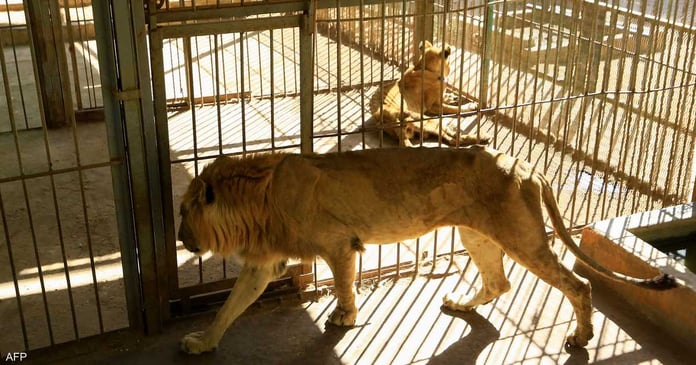Ongoing clashes between the Sudanese army and the Rapid Support Forces have made it impossible to access the site of the Khartoum Museum of Natural History.
The museum includes no less than 100 animals, which were placed in their cages a day before the fighting began on April 15, and since then they have received no food or water.
According to the “Associated Press” agency, the zoo of the Natural History Museum is home to many types of animals, including the lion, the African gray parrot, the vervet monkey, the giant lizards called Nile monitors, the tortoise of the desert, the horned serpent and the Nubian cobra.
The location of the museum, which is close to the headquarters of the Sudanese army, where fighting was taking place, made it difficult for people to access it and save the animals.
The museum documents the wildlife of Sudan as well as the state of South Sudan, and serves scientists, scholars and general visitors alike. It also contains hundreds of valuable preserved animal specimens, some of which are now extinct.
Sudanese who spoke to Sky News Arabia feared the repercussions of the current crisis on Sudan’s historical heritage, which is difficult to replace given the continuous clashes between the two sides in the conflict, with no hope of an immediate solution.
3 weeks without care
Museum director Sarah Saeed said animals there are “slowly dying of hunger, thirst and lack of care”, amid workers struggling to keep up with the animals, fearing for their lives that they may be hit by bullets on both sides.
The official revealed the current situation in several points:
The loss of some animals due to this crisis, including venomous snakes and scorpions which were collected with difficulty to serve the project to resettle the production of serums in Sudan, in addition to the loss of important reptiles for research at the College of Science. The loss of certain animals that are rarely found in their natural environment at present, on top of which is the crocodile, which was brought “like an egg and hatched to the museum in an important scientific experiment”. The museum area has been classified as a dangerous area for travel, and without permission to visit from the responsible government agencies, we will not travel to avoid any loss or possible injury to anyone. The museum administration cannot receive or cooperate with any party during this critical period, nor accept financial support due to the difficulty of doing so. There are no parties authorized to work on our behalf in the museum or university administration and Faculty of Science, and we are trying to make a true assessment of the current situation.
Read the Latest World News Today on The Eastern Herald.


